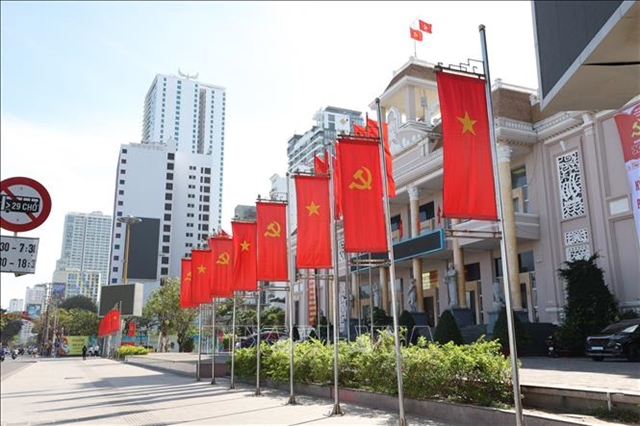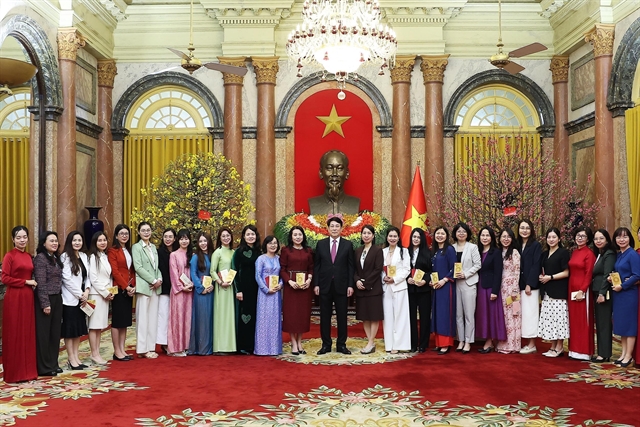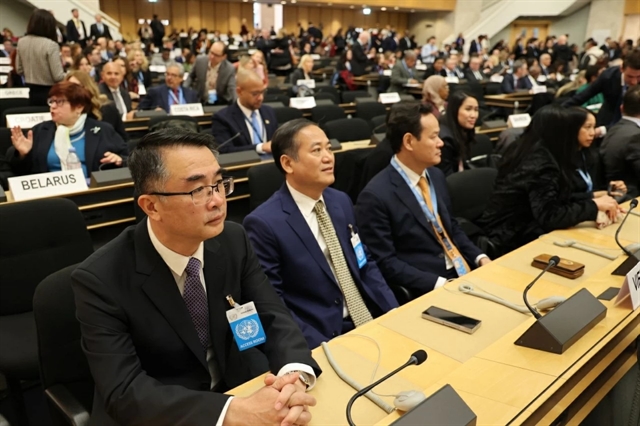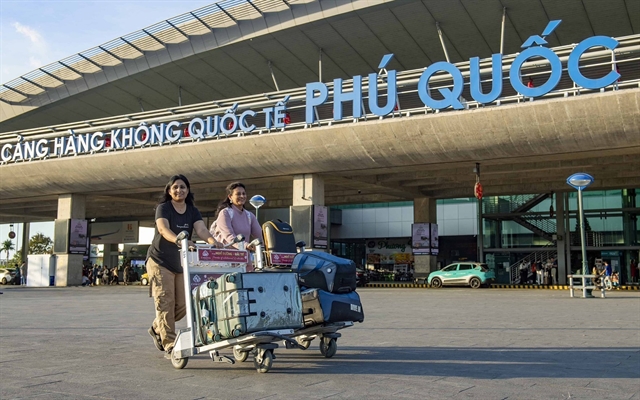 Economy
Economy

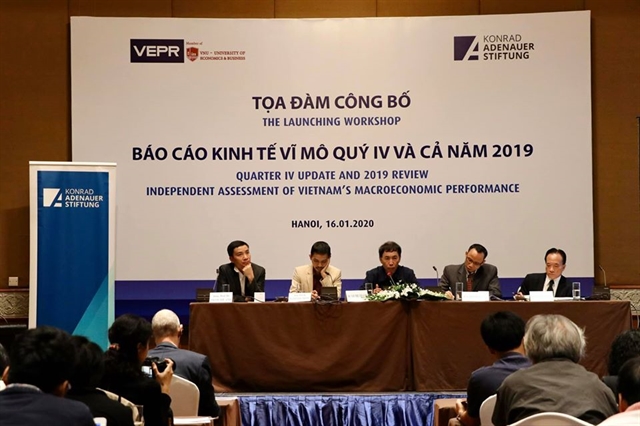
|
| Economists attend the seminar of Việt Nam Institute for Economic and Policy Research (VEPR) yesterday in Hà Nội. — Photo Minh Hương |
HÀ NỘI — Việt Nam's economy experienced good economic results in 2019, but it will be a challenge to repeat the strong growth this year.
Phạm Thế Anh, Chief Economist at the Việt Nam Institute for Economic and Policy Research (VEPR), made the statement at a seminar yesterday in Hà Nội. The economist said: “Though Việt Nam's economy still grew in the fourth quarter of 2019, despite global economic and political uncertainty, it is at risk of inflation.”
Anh, who led VERP’s team in drawing up macroeconomic reports for Q4 and the whole of 2019, noted that though the inflation average was kept below 4 per cent last year, the rate in December soared to more than 5 per cent.
Anh said: “With 7.02 per cent growth in GDP last year, Việt Nam is still a bright spot of economic development in the region and the world.”
However, he said it would not be easy to achieve the country’s planned growth of 6.8 per cent this year.
According to the report, the industrial and construction sector, the biggest pillar of 2019’s growth, was expected to face difficulties with a quiet real estate market. Meanwhile, the agricultural, forestry and fishery sector grew slowly due to severe weather and the African swine fever outbreak.
Anh forecast the service sector grew at more than 7 per cent in finance, banking and insurance, wholesale, retail, transportation and warehouse in 2019 also faced potential risks.
For 2020, the research team forecast a growth of 6.33 per cent in the first quarter, 6.27 per cent in the second quarter, 6.58 per cent in the third and 6.64 per cent in the fourth. For the whole of 2020, the team calculated that Việt Nam could reach 6.48 per cent growth.
While the team said long-term economic growth will continue to depend on FDI, the removal of institutional barriers, improvement of the business environment and equitisation of state-owned enterprises, economist, PhD. Võ Trí Thành said: “There is not yet a breakthrough in the business investment environment regarding the equitisation of State-owned enterprises. Though the Government planned to equitise 128 SOEs by 2020, only 28 per cent of the plan has been completed.”
Thành also added: “The pollution in big cities of Hà Nội and HCM City is worsening,” adding that “If Việt Nam does not focus on improving the situation, it will badly affect growth.”
Thành also said: “International trade and investment activities should be better after the signing of free trade agreements such as the CPTPP and EVFTA,” but he also noted: “Việt Nam needs to be cautious in international trade relations.”
He told the seminar: “China is the biggest import market of Việt Nam, while the US is the country’s largest export partner. In the middle of the current trade tensions between China and the US, Việt Nam should be very cautious.”
Economist Nguyễn Trí Hiếu said: “Though GDP is growing well, local people’s incomes are very low. Each person of Viet Nam only earns $2,680 per year on average.” The gross national income (GNI) per GDP of Viet Nam in 2018 was 93 per cent, 5.6 percentage points lower than in 2000.
Attending the VERP seminar, sponsored by Konrad-Adenauer-Stiftung (KAS), other economists also mentioned public debt, currency and forex policies, oil and gold prices as other concerns of local economic growth. — VNS

